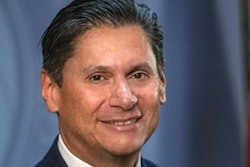Sixteen years’ worth of admissions data from one elite, private college in the Northeast has shown that the practice of legacy student admission, admitting children or siblings of previously matriculated alumni, offered an economic benefit to the institution. But this material benefit came at the cost of another admissions criterion: diversity.
 Dr. Ethan J. Poskanzer, assistant professor of strategy and entrepreneurship at the University of Colorado, Boulder.
Dr. Ethan J. Poskanzer, assistant professor of strategy and entrepreneurship at the University of Colorado, Boulder.
“These data are really hard to come by. Legacy admissions is talked about and is of interest for a lot of reasons, but usually college admissions processes are very guarded—for good reason—so we feel this was a very special opportunity to look closely,” said Poskanzer. “The thing we’d like colleges to take away from this study is the degree to which there are trade-offs in admissions that prioritize material goals and other goals. We find evidence that the decision to prefer legacies comes at the cost of diversity.”
That’s because the majority of legacy students admitted to The College were white. Hailing from areas with higher income, legacy students were less likely to apply for financial aid and were more likely to have attended private high schools. Legacy students’ parents were more likely to be tagged as potential top donors to The College.
“For a number of reasons, the pandemic, technological disruption, demographic changes, there are a lot of forecasts out there that indicate U.S. colleges and universities are entering a period of greater financial precarity,” said Poskanzer. “We think that a potential response to that could be prioritizing applicants who satisfy the material logic.”
 Dr. Jaekyung Lee, a professor of education at the University of Buffalo in New York.
Dr. Jaekyung Lee, a professor of education at the University of Buffalo in New York.
“Legacy preference admission is nothing new,” said Dr. Jaekyung Lee, a professor of education at the University of Buffalo in New York. “But this particular study uncovered the consequences of that admission—that’s pioneering and convincing.”















